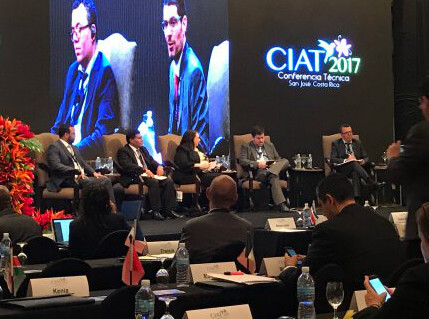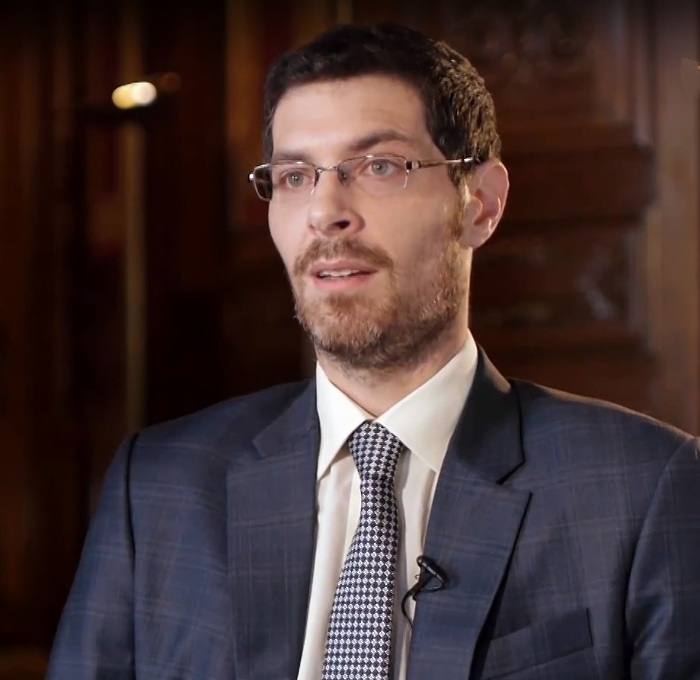-
06 October 2017
Category : Opinion
Challenges for tax administrations in Latin America
The director of Cooperation and International Taxation of the CIAT describes the great challenges faced by tax administrations in Latin America
 The director of Cooperation and International Taxation of the CIAT describes the great challenges faced by tax administrations in Latin America
The director of Cooperation and International Taxation of the CIAT describes the great challenges faced by tax administrations in Latin AmericaPerhaps “diversity” is the term that best fits Latin America (LA), both due to the geographical, economic and cultural differences between the countries and the inequality in the level of development of their inhabitants. It is not an easy task to define common challenges for their tax administrations (TA). The region has world-class TAs and others that have significant shortcomings, so that it is the mission of the Interamerican Tax Administration Centre (CIAT) to work toward reducing the significant gaps in their levels of development.
Although there are some regional standardisation tools – forms, manuals, proposals – in the area of taxation policy, there has been little success with standardisation. For example, the CIAT-BID-GIZ Tax Code presents a regional model that is intended to motivate reforms that will “level the playing field”. In international taxation[1], transparency and the exchange of information[2], leading to a standardisation process that arises from global initiatives. This process is a challenge for the region. However, it grew out of the experiences of developed countries and not LA. This process could be called “imported standardisation”.
LA TAs have improved mainly thanks to the use of technology and greater political support from their governments. According to data from the CIAT, since the 60s, the tax revenue of LA central governments has shown a positive trend, rising from 9.7 (1960) to 16.2 (2014) GDP points, with the latter value the highest recorded in that period.
The great challenge faced by the TAs consists of “making + out of -“. To do this, it is necessary to direct efforts to the areas in which there is a risk of non-compliance, with the aim of classifying them, preventing them from occurring or managing them. The challenge consists of strengthening various processes and integrating them into one single platform, e.g., access to information and its handling, a taxpayer register, tax current accounts, billing systems, taxpayer service, investigation, auditing, recovery, collection, cooperative compliance initiatives, etc. In this area, the use of advanced technological solutions makes the difference. So as not to fail in the attempt, it is essential to have proper planning, where the critical departments must act in coordination, even with players outside the TA.

Isaac Gonzalo Arias, Director of Cooperation and International Taxation of the CIAT Properly monitoring tax incentives contributes to the previous proposal. According to data from the CIAT, in LA they represent on average 4.6 GDP points (2012), which is a significant figure. In addition, the proper application of agreements to prevent double taxation is a challenge. This last topic is not important now everywhere, although the countries of LA are gradually extending their networks.
Strengthening the legal infrastructure is an unresolved issue for many LA countries. At the present time, tax planning is sophisticated, leaving a very thin line between avoidance and evasion. It is complicated for the TAs to apply general and specific anti-abuse rules. In addition, it is appropriate to propose strategies for avoiding litigation and to pay attention to the capacity of the courts that handle tax-related cases.
To face these challenges, political commitment, dialogue and cooperation between peers, international support, investment in resources for the TAs and, above all, tax transparency are indispensable. Within this framework, the cooperation agreement signed recently by the CIAT and FIIAPP to promote the exchange of experiences, knowledge and good practices between the TAs of the European Union and Latin America and between Latin American administrations as part of the EUROsociAL+ Program offers an opportunity to LA TAs.
[1] BEPS Inclusive Framework
[2] Standard on transparency and exchange of information
Isaac Gonzalo Arias, Director of Cooperation and International Taxation of the CIAT
The views and opinions expressed in this blog are the sole responsibility of the person who write them.






